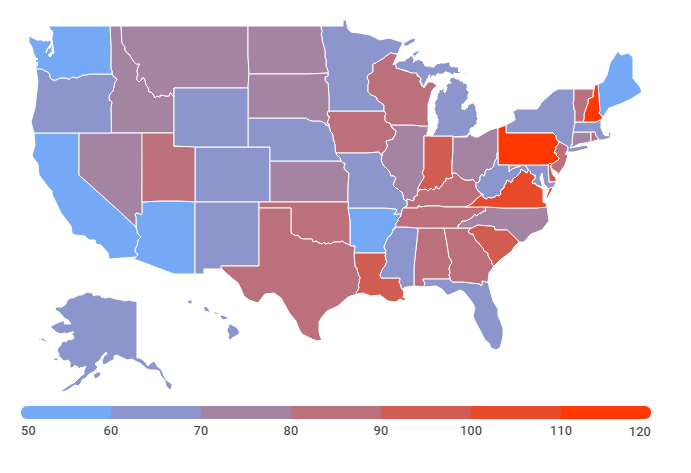Women and Education: Celebrating International Women's Day
Two words that didn’t always go together, especially when discussing higher education. Two words that still don’t in many countries around the world. I am grateful that this job I chose almost 5 years ago lets me support women and their education every day. So on this International Women’s Day, I say, let’s get a little louder and continue this important conversation.
The importance of supporting the education of women and girls
Education is essential for personal growth, economic development, and social progress. However, in many parts of the world, girls and women face significant barriers to accessing education.
- According to UNESCO, there are approximately 130 million girls out of school worldwide. This means that around 60% of the 22 million children who are not in school are girls.
- The gender gap in education is particularly pronounced in sub-Saharan Africa and South Asia, where two-thirds of all out-of-school girls live.
- Women with a secondary education are more likely to enter the workforce and earn higher salaries than women with only primary education. In low-income countries, a one-year increase in female education can increase a woman's earnings by 10-20%.
- Educated women are more likely to marry later, have fewer children, and have healthier children. The children of educated women are also more likely to attend school themselves.
- Girls' education has a multiplier effect on social and economic development. Educated women are more likely to participate in civic life and make positive changes in their communities.
- According to a study by the World Bank, every extra year of education for girls can increase their country's GDP by 0.3%.
- Investing in girls' education can have significant returns on investment. A study by the Brookings Institution found that every dollar invested in girls' education can generate a return of up to $10 in economic growth and social benefits.
- Despite the importance of girls' education, funding for education programs that target girls remains low. According to the Malala Fund, only 1% of global education funding is allocated to programs that specifically focus on girls' education.
The road to equal access is paved with persistence
Progress has been made, but there is still work to be done to ensure that all women have equal access to and opportunities for academic success. Let’s recognize and celebrate the wins of the persistent women who walked before us and beside us.
- Enrollment and Graduation Rates: According to the National Center for Education Statistics, women's enrollment in degree-granting institutions has increased steadily over the past decade and is currently higher than men's. Additionally, women's graduation rates have also improved, and they now earn more bachelor's and advanced degrees than men.
- Access to Higher Education: It is crucial to acknowledge that women have historically faced barriers to accessing higher education, including societal expectations, financial constraints, and institutional biases. Despite these challenges, women have persisted and overcome these obstacles to achieve academic success.
- Diversity: It is also essential to recognize that women's success in college is not homogenous, and there is significant diversity among women in terms of race, ethnicity, socio-economic background, and other factors. It is important to highlight the unique challenges that women from underrepresented groups face and the need to address these disparities.
- Impact on Career Opportunities: Women's success in college has a significant impact on their career opportunities and earnings potential. Women with college degrees are more likely to enter higher-paying professions and experience greater job security and advancement opportunities.
- Role Models: Celebrating the success of women in college can inspire and motivate other women to pursue higher education and achieve their academic and career goals. Highlighting successful women in various fields and sharing their stories can provide valuable role models for young women.
Author: Kelly Johnston
Kelly is the Marketing Director at Akademos and has worked in content marketing, creative direction, and marketing communications across various industries since 2004.



